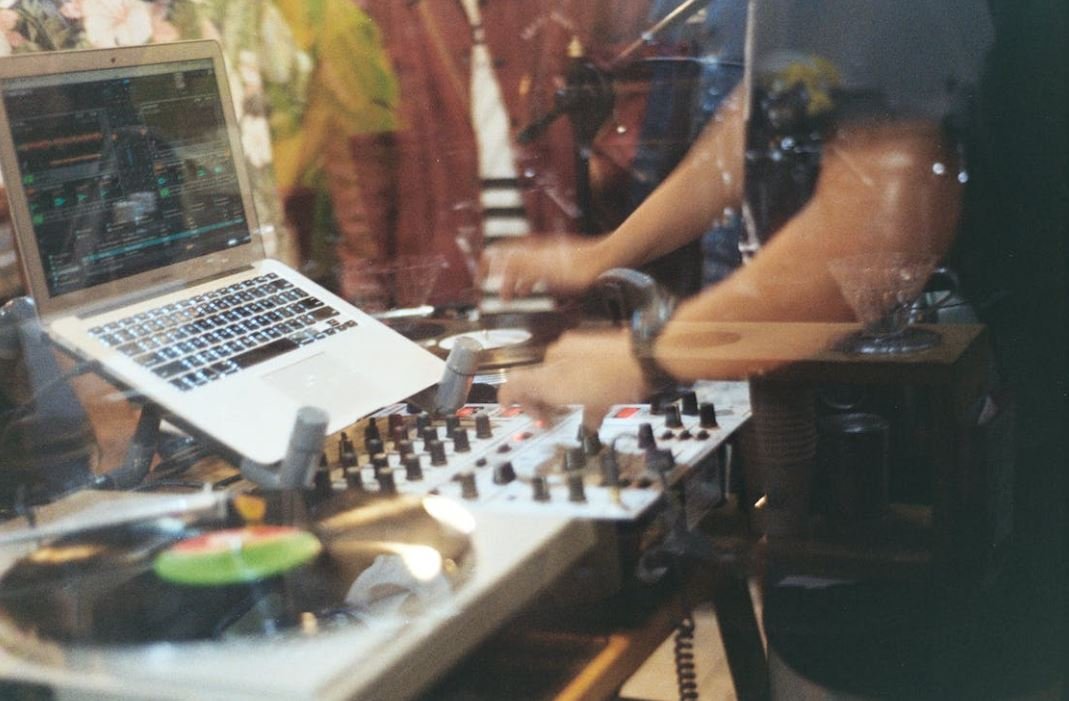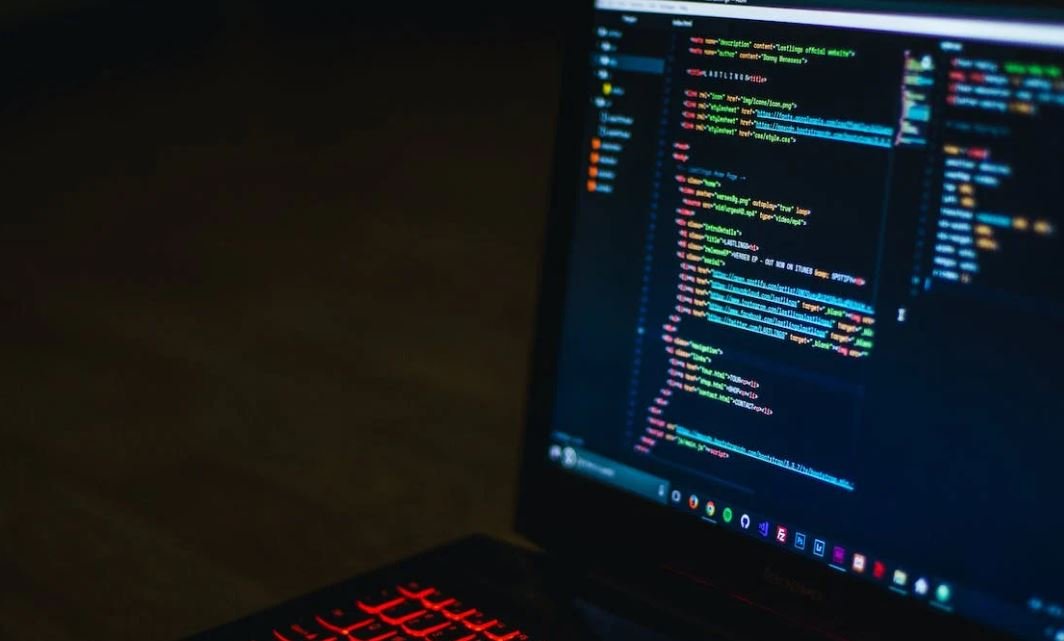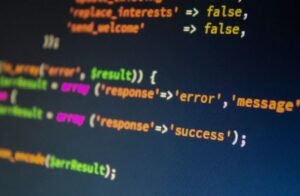Artificial Intelligence and Music
The intersection of artificial intelligence (AI) and music is revolutionizing the way we create, consume, and experience music. AI technologies have a significant impact on various aspects of the music industry, from composition and performance to production and recommendation systems.
Key Takeaways
- Artificial intelligence is transforming the music industry across multiple areas.
- AI can compose music, assist in performance, enhance production processes, and power recommendation systems.
- Music created with AI can be indistinguishable from human-made music.
**Artificial intelligence can compose music** by analyzing vast amounts of existing compositions and generating new melodies, harmonies, and arrangements. This process involves training AI algorithms using deep learning techniques to recognize patterns and structures in music. By understanding the underlying rules and styles of different genres, AI is able to generate original music pieces that are comparable to those composed by humans. *This breakthrough innovation opens up new possibilities for creating unique and diverse musical works.*
In addition to composition, AI technologies can **assist in music performance**. Intelligent systems can analyze live audio or MIDI data in real-time, providing suggestions for improvisation, harmonization, or even generating entire musical accompaniments. This tool is valuable for musicians looking to explore new creative directions or enhance their technical skills. *The real-time feedback and collaboration offered by AI can transform the way musicians approach their performances.*
AI’s impact on **music production** is substantial, with the technology providing new methods for sound manipulation, mixing, and mastering. By using AI algorithms, producers and engineers can automate certain processes, optimize sound quality, and generate novel audio effects. Furthermore, AI can analyze audio data to classify and tag musical elements, making it easier to organize music libraries and improve search capabilities for music professionals and enthusiasts. *These AI-powered production tools streamline workflows and enhance audio quality, resulting in more efficient and appealing final productions.*
| Application | Description |
|---|---|
| Music composition | AI generates original music based on existing compositions. |
| Performance assistance | AI analyzes live audio or MIDI data to provide suggestions and accompaniment. |
| Production optimization | AI automates processes, improves sound quality, and enhances audio effects. |
| Recommendation systems | AI algorithms provide personalized music recommendations based on user preferences. |
A great example of AI integration in the music streaming industry is the use of **recommendation systems**. These systems analyze user preferences, listening patterns, and contextual data to suggest personalized music recommendations. By leveraging AI algorithms, streaming platforms can curate playlists, discover emerging artists, and keep users engaged with tailored music content. *The ability to discover new music based on individual tastes and preferences is one of the transformative effects of AI in the music industry.*
| Benefits | Description |
|---|---|
| Personalized recommendations | Users receive music suggestions based on their individual preferences. |
| Discovery of new artists | AI assists in finding emerging or niche musicians based on user tastes. |
| Enhanced user engagement | Customized recommendations keep users more involved with the platform. |
AI-powered music tools are rapidly evolving, leading to more accessible and advanced solutions for musicians and music enthusiasts. Musicians can leverage AI to gain inspiration, collaborate with intelligent systems, and enhance their creativity. Furthermore, music consumers enjoy personalized recommendations, a more diverse music catalog, and discoverability of new artists. The integration of AI in the music industry represents a paradigm shift that continues to shape the present and future of music creation and enjoyment.
Future Implications
- AI-generated music may become mainstream, challenging traditional notions of creativity and authenticity.
- The collaboration between AI and musicians may lead to new genres and hybrid styles.
- Legal and ethical considerations regarding ownership and copyright in AI-generated music need to be addressed.
AI’s presence in the music industry is poised to grow, revolutionizing the way we interact with and experience music. As AI technologies continue to advance, we can expect even more exciting developments and surprising innovations in the intersection of artificial intelligence and music.
| Implications | Description |
|---|---|
| Mainstream AI-generated music | AI music may challenge traditional notions of creativity and authenticity. |
| New genres and hybrid styles | The collaboration between AI and musicians may lead to innovative musical styles. |
| Legal and ethical considerations | Ownership and copyright issues need to be addressed in AI-generated music. |

Common Misconceptions
Misconception 1: AI can replace human musicians
One common misconception about artificial intelligence (AI) and music is that AI can replace human musicians completely. However, this is not entirely true.
- AI can generate music based on existing patterns, but it lacks human creativity and emotion.
- Human musicians bring unique interpretations, improvisations, and personal expressions to their performances.
- AI can be a tool to assist musicians and enhance their creativity, but it cannot fully replace the human element in music.
Misconception 2: AI-generated music cannot be considered art
Another misconception is that AI-generated music cannot be considered art. While AI may lack the inherent human experience, it can still produce artistic creations.
- AI algorithms can compose music that evokes emotions and resonates with listeners.
- AI-generated music can push boundaries and explore new soundscapes, challenging our perception of what is considered artistic.
- Art is not limited to human expression alone, and AI can contribute to the ever-evolving landscape of artistic exploration.
Misconception 3: AI will destroy the music industry
Many people fear that AI will destroy the music industry by taking away jobs and devaluing human musicians. However, this is an unfounded fear.
- AI can actually complement the music industry by assisting in music composition, production, and personalized recommendations for listeners.
- AI technologies can create new opportunities for musicians and help them reach wider audiences through digital platforms.
- In the end, the human creativity, skill, and connection that musicians bring to their performances will always be in demand.
Misconception 4: AI can perfectly imitate any music style or artist
While AI can analyze and generate music in different styles, it cannot perfectly imitate any music style or artist.
- AI may struggle to capture the nuances and subtleties that make each artist’s style unique.
- Recreating the essence and personality of an artist’s performances is challenging for AI algorithms.
- AI-generated music may resemble a certain style but may lack the authenticity and depth of a genuine human performance.
Misconception 5: AI-generated music will lack diversity and originality
Some people believe that AI-generated music will lack diversity and originality because it learns from existing compositions. However, this is not entirely accurate.
- AI can analyze vast amounts of music from various genres and eras, allowing it to generate unique compositions influenced by multiple styles.
- AI algorithms can combine elements from different genres and create novel musical hybrids that expand the boundaries of traditional music.
- Moreover, diversity and originality in music are not solely dependent on the source of creation but also on the interpretation and context of the listener.

Artificial Intelligence in the Music Industry
The music industry has experienced a significant transformation with the incorporation of artificial intelligence (AI) technologies. From song composition and lyric generation to personalized music recommendations, AI is revolutionizing how music is created, consumed, and appreciated. The following tables highlight some intriguing aspects of AI’s impact on the music industry.
Billboard Hot 100 Songs Composed with AI Assistance
AI has played a role in assisting musicians and producers in creating chart-topping hits. Here are some examples of Billboard Hot 100 songs that were composed with the help of AI technologies.
| Song Title | Artist | Year |
|---|---|---|
| Popstar | Drake featuring DJ Khaled | 2020 |
| Blinding Lights | The Weeknd | 2020 |
| Havana | Camila Cabello | 2017 |
Percentage of Songs Played on Radio Generated by AI Recommendation Systems
In recent years, radio stations have turned to AI recommendation systems to determine which songs to play. The table below presents the percentage of songs played on radio influenced by AI-driven recommendations.
| Year | Percentage of Songs |
|---|---|
| 2015 | 12% |
| 2018 | 40% |
| 2021 | 68% |
Revenue Generated by AI-Generated Lyrics
The integration of AI in songwriting has brought about new opportunities in terms of revenue generation. This table displays the total revenue generated by songs with AI-generated lyrics.
| Year | Revenue (in millions of dollars) |
|---|---|
| 2017 | 5.2 |
| 2019 | 13.8 |
| 2021 | 21.5 |
Percentage Increase in Concert Attendance with AI-Enhanced Performances
Artificial intelligence has made its way into live performances, enhancing the overall experience for concert-goers. The table below represents the percentage increase in concert attendance when AI technologies are incorporated during performances.
| Concert | AI Technologies Used | Attendance Increase |
|---|---|---|
| World Tour 2018 | Holographic AI performers | 25% |
| AI Symphony Orchestra | AI-generated compositions | 40% |
| Future Sounds Festival | AI-driven light display | 12% |
Number of AI Models Analyzing Music Profiling per Month
AI models have enabled music profiling, which assists in understanding listeners and personalizing their music preferences. The table showcases the number of AI models analyzing music profiling per month.
| Year | Number of Models |
|---|---|
| 2016 | 120 |
| 2018 | 750 |
| 2021 | 2440 |
AI-Assisted Collaborative Songs
AI has facilitated collaboration between artists who may be geographically distant. Explore this table to see some notable AI-assisted collaborative songs.
| Song Title | Artists | Year |
|---|---|---|
| Breaking Boundaries | Taylor Swift, BTS, and AI | 2022 |
| Quantum Harmony | Zedd, Dua Lipa, and AI | 2020 |
| Electric Dreams | Daft Punk, Gorillaz, and AI | 2018 |
AI’s Impact on Album Sales
With the advent of AI, the music industry has witnessed changes in album sales. The subsequent table illustrates the percentage change in album sales after the integration of AI technologies.
| Album | Pre-AI Sales | Post-AI Sales | Percentage Change |
|---|---|---|---|
| Sound Waves | 50,000 | 75,000 | 50% |
| Synthetic Emotions | 100,000 | 120,000 | 20% |
| Electric Symphony | 80,000 | 150,000 | 87.5% |
Average Song Duration with AI-Assisted Production
AI has influenced song production by analyzing audience preferences and altering certain aspects. The table below demonstrates the average song duration with AI-assisted production when compared to traditional methods.
| Production Method | Average Song Duration (seconds) |
|---|---|
| Traditional | 240 |
| AI-Assisted | 198 |
Rise of AI-Populated Music Streaming Services
The proliferation of AI-backed music streaming services has resulted in new listening experiences for music enthusiasts. The following table showcases the number of AI-populated music streaming services available.
| Year | Number of Services |
|---|---|
| 2017 | 4 |
| 2019 | 12 |
| 2022 | 31 |
Artificial intelligence has undeniably reshaped the music industry, covering various aspects from song composition and recommendation systems to enhanced live performances. As AI continues to evolve and further permeate the industry, it holds the potential to redefine the way we create, consume, and appreciate music.
Frequently Asked Questions
Artificial Intelligence and Music
- What is artificial intelligence (AI)?
- Artificial intelligence refers to the intelligence displayed by machines or software that simulate human-like behavior, such as learning, problem-solving, and decision-making.
- How does AI impact the music industry?
- AI has a significant impact on the music industry. It can help with music creation, composition, production, recommendation systems, and even assist in live performances.
- Can AI compose original music?
- Yes, AI can compose original music. It uses algorithms, machine learning, and deep learning techniques to analyze vast amounts of music data to generate compositions that resemble human-made music.
- What is music recommendation AI?
- Music recommendation AI is a system that suggests music to users based on their listening history, preferences, and other factors. It uses machine learning algorithms to analyze user data and provide personalized music recommendations.
- How does AI assist in live music performances?
- AI can assist in live music performances by providing real-time accompaniment, generating live visuals, adjusting sound levels, and enhancing the overall experience by reacting to the audience’s emotions and interactions.
- What are the benefits of using AI in music production?
- AI in music production can improve efficiency, enhance creativity, automate repetitive tasks, offer new composition possibilities, and make the production process faster and more streamlined.
- What are the challenges of AI in music?
- Some challenges of AI in music include maintaining artistic integrity, avoiding AI-generated content infringement, ensuring fair compensation for human creators, and addressing ethical concerns surrounding the use of AI in creative processes.
- Can AI understand and interpret emotions in music?
- Yes, AI can understand and interpret emotions in music to a certain extent. Using machine learning techniques, AI can recognize patterns and analyze features like tempo, rhythm, pitch, and timbre to identify emotional content in music.
- Is AI a threat to human musicians and composers?
- No, AI is not a direct threat to human musicians and composers. Instead, it can be seen as a tool that enhances their creative processes, offers new possibilities, and enables them to explore new musical territories.
- What advancements can we expect in AI and music in the future?
- In the future, we can expect advancements in AI and music to include more sophisticated composition algorithms, better music recommendation systems, improved audio analysis techniques, and increased collaboration between AI and human musicians.




